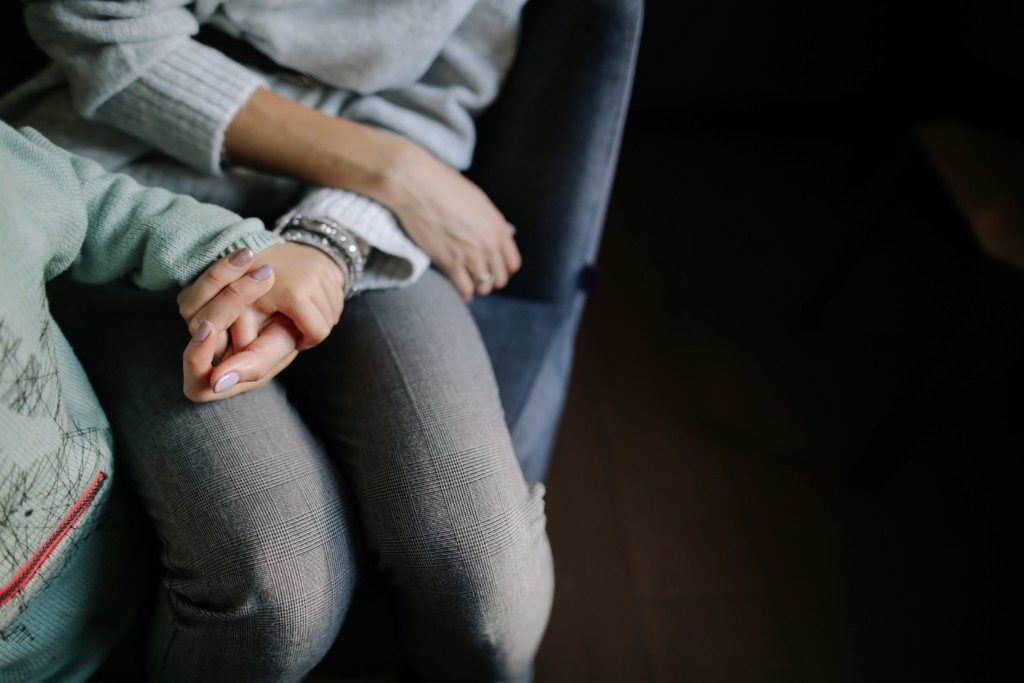She was only 13 when it happened. Behind closed doors, she was trapped. He was twice her size and had been one of the most trustworthy guys in her school. The last person she ever suspected to do it. He pinned her up against the wall and she was speechless. She meant to open her mouth and scream, but nothing came out. Weeks later, her mom sobbed uncontrollably as her story unfolded in front of the detective’s eyes.
This man everyone thought was so loving and kind is now in jail, accused of repeatedly molesting girls just like her. According to the United States Department of Health and Human Services, one in nine girls and one in 53 boys under the age of 18 experience sexual assault at the hands of an adult. 82 percent of all victims under 18 are female.
So it begs the question: what do we do when our kids fall into these statistics? And how do we keep them safe from this horrible fate?
The Talk
Keeping the lines of communication open is critical for our kids. Try not to punish – in any way – any kind of confession. The level of vulnerability in confession, especially relating to sexual assault, is steep. Forgiveness comes with natural consequences. But always stress that you are the parent and here to help fix whatever trouble your child might feel they’ve gotten trapped in. We as parents have to come into every situation with the intention of purposefully training our kids to come to us for help. That way our kids will know that telling us something bad might upset us, but will never ruin their relationship with us. By empowering our children through simple conversation and love, we could save them and ourselves from a lifetime of pain.

So what should a conversation with your child look like?
Identify “private areas”
Focus on how awesome God made our bodies. How special we were designed (1 Corinthians 6:19-20).
As you talk about the body make sure you identify for your child which parts of their body are private and the proper names for them. Nicknames for private parts will not help your child speak clearly if he or she is a victim. If you have young children, try sharing this information during their bath time, dress time or potty time.
One thing to stress besides the fact that no one should look at or touch them in their private areas is the exception of a pediatrician and ONLY while in the presence of a parent.
Do not keep secrets
Your child will most likely be told that the abuse should be kept a secret. Most likely as a threat. Please stress to your child that if at any point in time they feel scared, threatened or uncomfortable by words or gestures from any person, that it should not stay a secret. Over-communicate that your child has to tell someone if anyone touches them in their private areas or hurts them physically in any other way – no matter who the person is, or what the person says to them. It is crucial that your child be confident in knowing that they will not get in trouble if he or she tells you that they have been touched. No matter how serious. Tell them how proud you are that they had the courage to come through and speak their truth.
Decoding and saying ” NO”
Often, kids think they are supposed to respect their elders and be nice. They go along with things that may not feel right to them because they feel obligated to “show respect.” Obviously, we should instruct our kids to be respectful, but there is power in the word “NO.” They need to know this.
One way to help your children communicate when they are feeling unsafe is giving them a code word. Whether it’s on the phone call from a sleepover, with a house filled with guests, or our infamous mommy play dates. They should have code words they can use when they feel unsafe.
How to Love Families Who Have Survived Sexual Abuse
There are more families than you think dealing with the shame of someone else’s sins. Hurt and hopelessness consume them every day. We need to realize that God hates what happened. And though He is the God of compassion and love, He is also one of justice and correction.
Understand this. The abuser can be brought to repentance through the power of the Holy Spirit, but it will never happen until the abuser bows convicted of his sin and finds hope only through God almighty.
Until then, we must rally around these families dealing with unbearable suffering. Help them find safety and love in God through tangible truths from God’s word. Help from doctors, advocates, Christian counselors, and resources to help survivors travel through their journey of peace and healing.
















